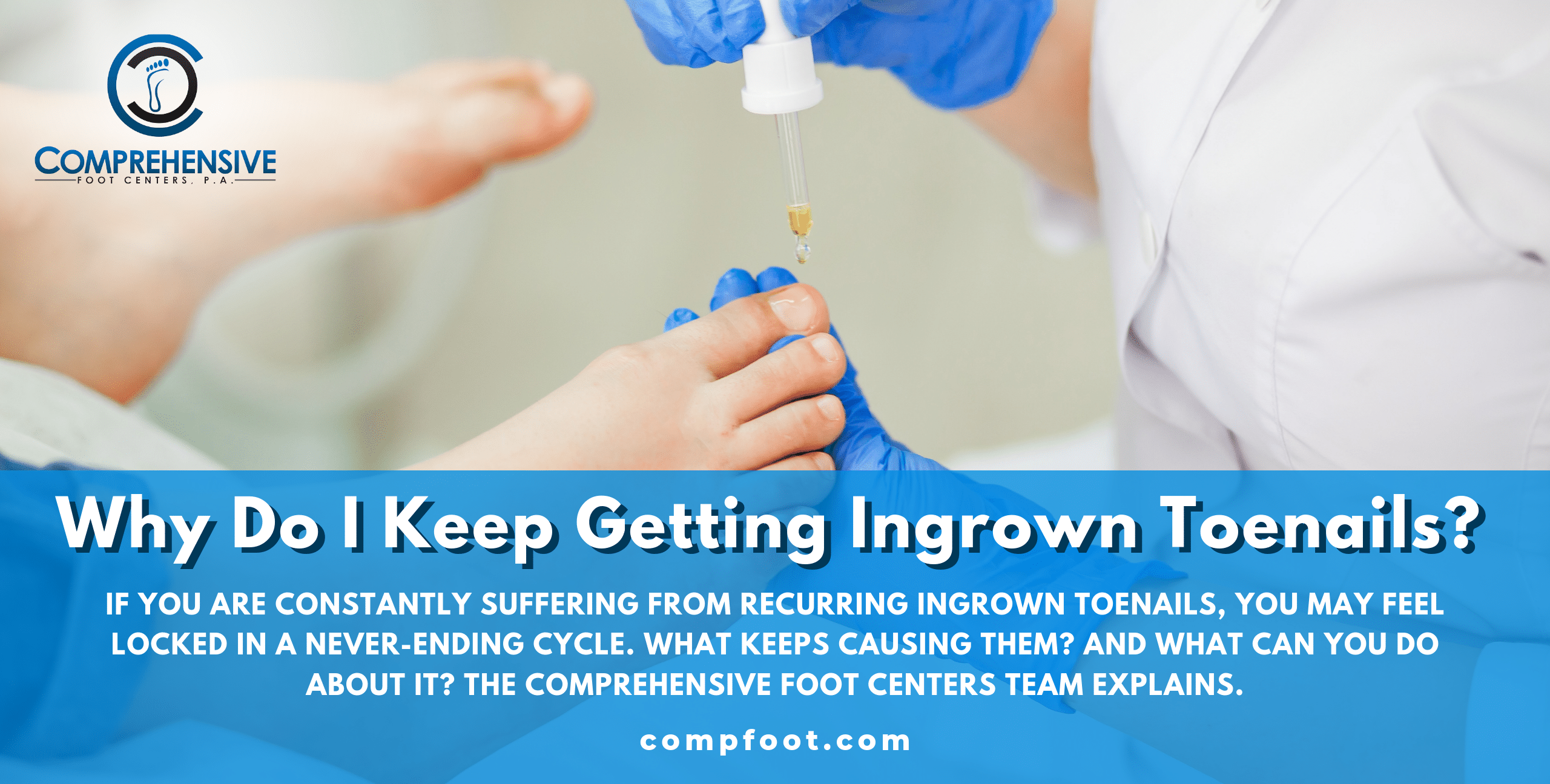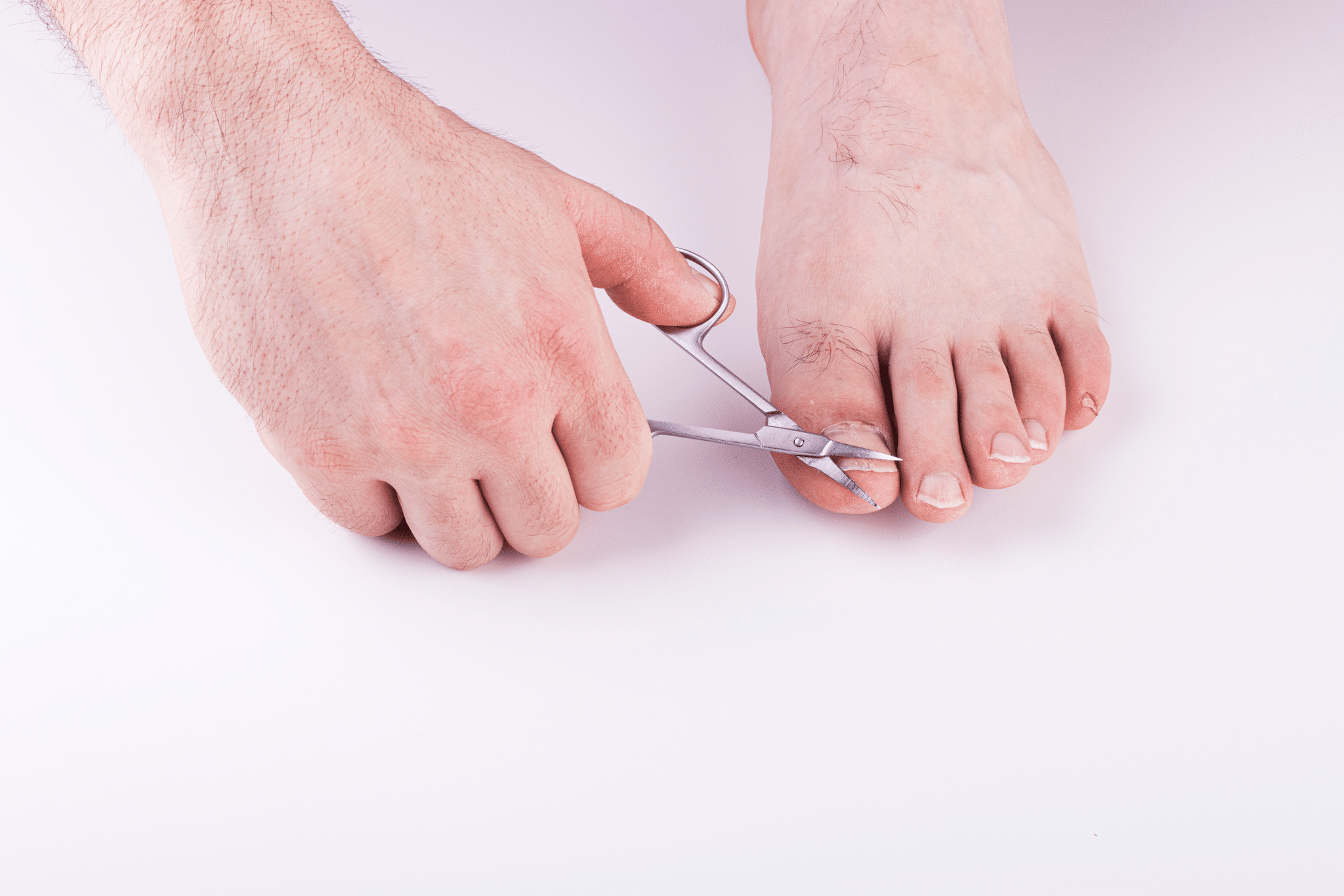Why Do My Ingrown Toenails Keep Coming Back? Top 5 Reasons!
Have you ever felt trapped in a cycle similar to the movie “Groundhog Day”? Just like the protagonist, who relives the same day repeatedly, many people experience the frustration of recurring ingrown toenails despite their best efforts to treat them. In this blog, we will delve deeper into the common foot problem of ingrown toenails, explore the top reasons for their persistence, and provide actionable tips for prevention and treatment.
What Are Ingrown Toenails?
Ingrown toenails are a prevalent foot problem that occurs when the edge of a toenail grows into the surrounding skin. This can lead to pain, swelling, redness, and even infection. Despite being a common issue, the recurrence of ingrown toenails can be both perplexing and distressing for sufferers, impacting their quality of life and daily activities.

The Frustration of Recurring Ingrown Toenails
Living with recurring ingrown toenails can be frustrating and demoralizing. You may find yourself constantly dealing with pain, discomfort, and the inconvenience of ongoing treatments. Over time, this can take a toll on your mental and physical well-being, affecting your ability to participate in activities you enjoy and even hindering your mobility.
Top Reasons for Persistent Ingrown Toenails
Improper Nail Trimming
One of the most common causes of ingrown toenails is improper nail trimming. Cutting your toenails too short or rounding the corners excessively can create sharp edges that penetrate the surrounding skin, leading to ingrown toenails.
Proper nail care techniques are crucial to prevent this. To trim your toenails safely, aim to cut them straight across, keeping them even with the tip of your toe. Using a dedicated toenail clipper with longer, wider arms can provide better leverage for a cleaner cut. Additionally, filing your toenails gently can help smooth out any rough edges. Remember, toenails should be trimmed while they’re dry to reduce the risk of tearing.
Genetics
Genetics plays a significant role in the development of ingrown toenails. Some individuals are genetically predisposed to this condition due to inherited traits like curved or unusually shaped nails. If you have a family history of ingrown toenails, your chances of experiencing this problem are higher.
In such cases, proactive management and preventive measures become even more crucial. Regular foot inspections and early intervention can help mitigate the risk of ingrown toenails and reduce their recurrence.
Ill-Fitting Footwear
The shoes you wear can also contribute to the development of ingrown toenails. Tight or narrow shoes compress the toes, hindering normal toenail growth and increasing the risk of ingrown toenails. On the other hand, shoes that are too big can cause your feet to slide around, leading to repetitive trauma to the toenails.
To prevent ingrown toenails, opt for shoes with adequate toe room and avoid styles that constrict or press against your toes. It is also essential to choose footwear made of breathable materials to keep your feet dry and reduce the risk of fungal infections.
Injury or Trauma
Trauma to the toe area can disrupt normal nail growth patterns, making ingrown toenails more likely. Common toe injuries, such as stubbing your toe or dropping heavy objects on your foot, can impact nail health and lead to ingrown toenails.
To minimize the risk of trauma, wear protective footwear when engaging in physical activities or working in hazardous environments. Promptly treating any toe injuries and seeking medical attention can help prevent complications and promote healthy nail growth.
Poor Foot Hygiene
Neglecting foot care and hygiene can also contribute to the development of ingrown toenails. Failing to keep your feet clean and dry can create a moist environment that encourages bacterial and fungal growth, leading to infections and ingrown toenails.
To uphold good foot hygiene, cleanse your feet daily using gentle soap and warm water, ensuring thorough drying afterward, paying particular attention to the spaces between your toes. Wearing clean socks made of breathable materials can also help keep your feet dry and reduce the risk of infections.
Additional Tips for Preventing Ingrown Toenails
Regular Foot Inspections: Check your feet regularly for signs of ingrown toenails, such as redness, swelling, and pain. Early detection and intervention can help prevent complications and reduce the severity of ingrown toenails.
Proper Footwear Selection: Choose shoes that provide adequate support and cushioning to reduce pressure on your toenails. Avoid high heels and tight-fitting shoes that can squeeze your toes and contribute to ingrown toenails.
Foot Soaks: Soaking your feet in warm water can help soften the toenails and surrounding skin, making it easier to trim your nails properly. Add Epsom salt or a mild foot soak solution to the water for added benefits.
Moisturize Regularly: Keep your feet moisturized to prevent dryness and cracking, which can create openings for bacteria and fungi to enter, leading to infections and ingrown toenails.
Avoid Cutting Corners: Resist the temptation to cut the corners of your toenails, as this can encourage the nail to grow into the surrounding skin, increasing the risk of ingrown toenails.
By incorporating these additional tips into your daily routine, you can further reduce the risk of ingrown toenails and maintain healthy feet. Remember, proactive management and preventive measures are key to overcoming this common foot problem and enjoying a pain-free life.

Breaking the Cycle with Professional Help
If you’re facing persistent issues with ingrown toenails, it’s crucial to consult our skilled podiatrists. At Comprehensive Foot Centers, we offer effective solutions to relieve ingrown toenails and prevent their recurrence.
During your appointment, we can provide quick relief by numbing the toe, gently removing the ingrown part of the nail, and bandaging the area. Additionally, we offer a procedure called a matrixectomy to remove the nail bed responsible for growing new nail tissue along the ingrown edge, significantly reducing the chances of future ingrown toenails.
Take Action Today
Don’t let ingrown toenails continue to disrupt your life. If you’re tired of dealing with this persistent problem, contact Comprehensive Foot Centers at (816) 455-1155 or request an appointment online. With three convenient office locations in Missouri and Kansas, we’re here to help patients throughout the Kansas City area break free from the cycle of ingrown toenails.
Take the first step toward healthier feet and a pain-free life. Schedule your appointment with Comprehensive Foot Centers today and say goodbye to recurring ingrown toenails for good! Our team of experienced podiatrists is dedicated to providing personalized care and effective solutions to help you overcome this common foot problem and regain your mobility and confidence. Don’t wait any longer – call us now and take control of your foot health!
